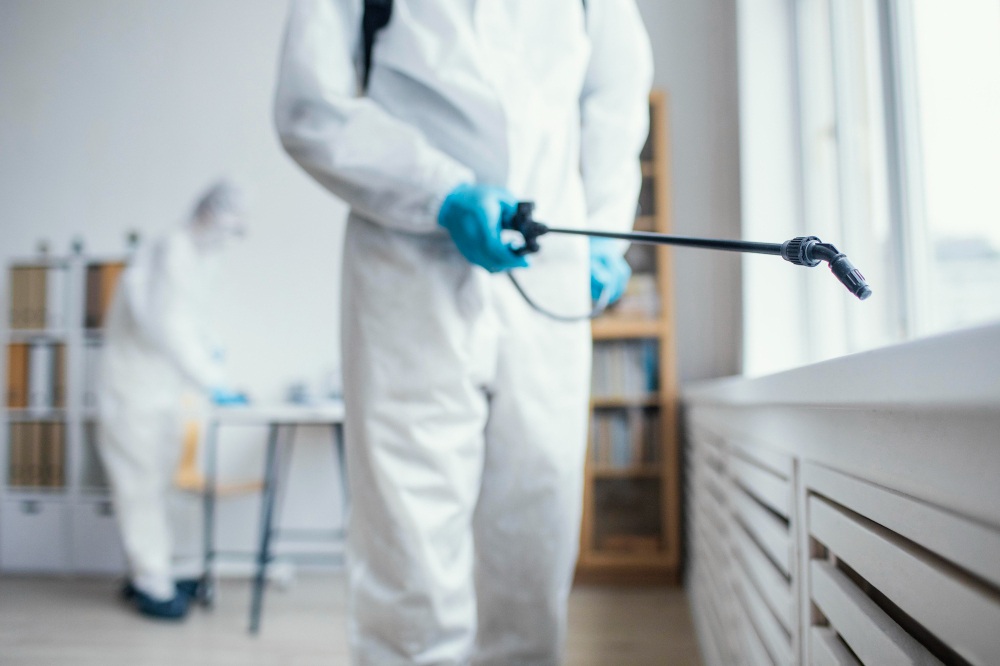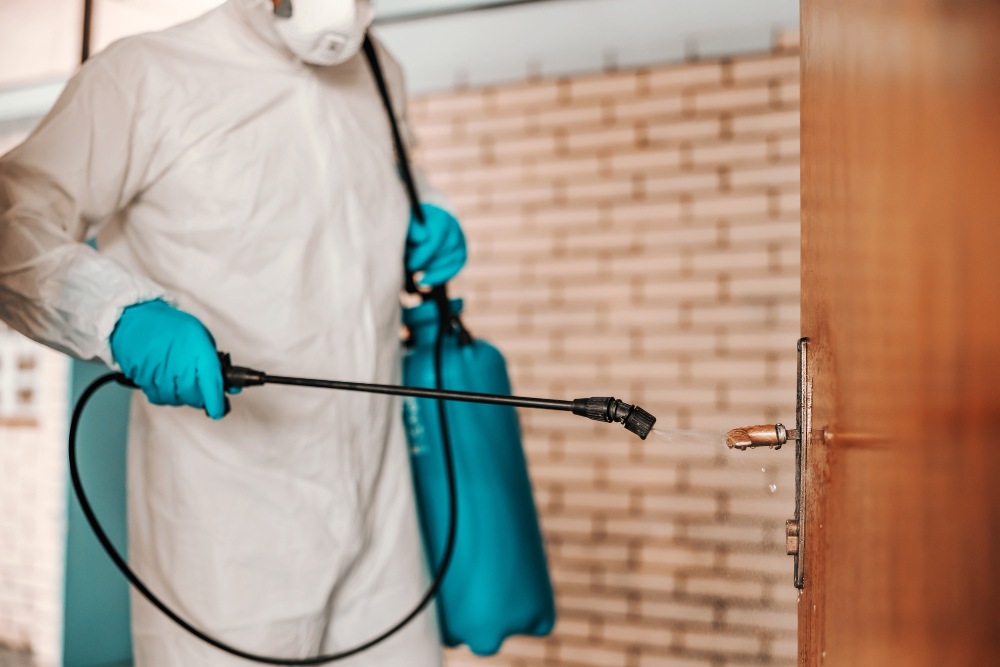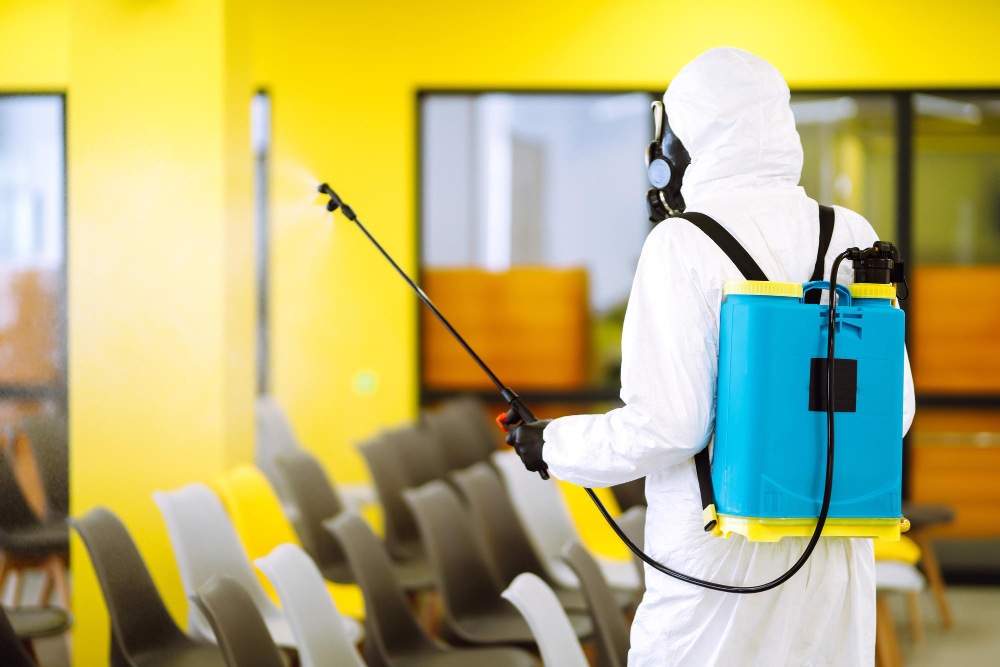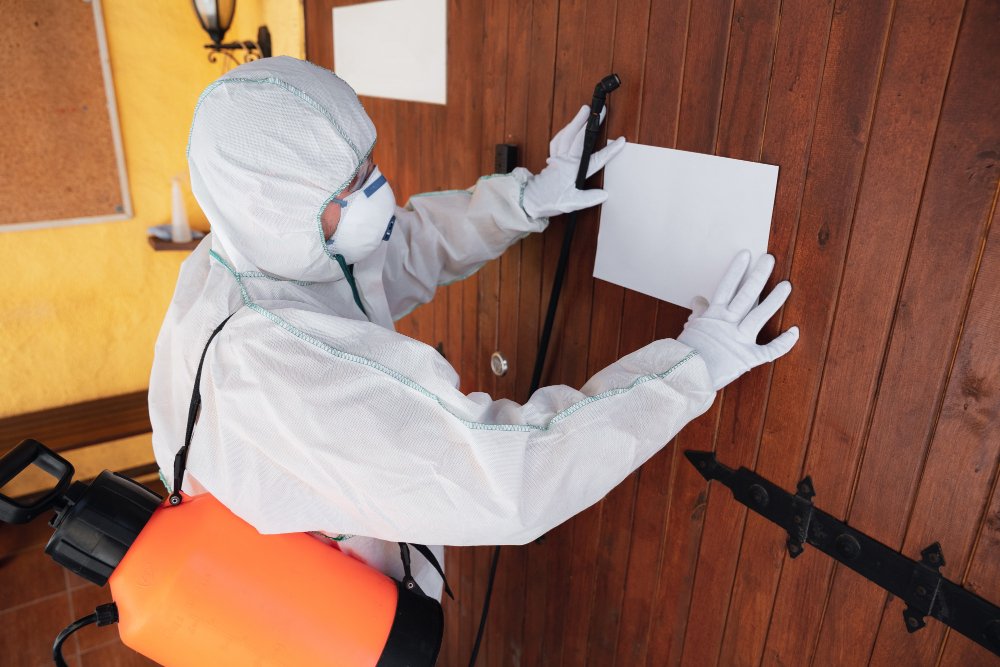
10 Essential Steps to Starting a Pest Control Business from Scratch
Introduction
The pest control industry is not only essential for maintaining public health and safety, but it’s also a highly profitable sector. As pests continue to pose risks to homes, businesses, and agriculture, the demand for effective pest control services remains strong. For entrepreneurs looking to enter this field, the potential for success is significant.
However, starting a pest control business is not without its challenges. From navigating the legal requirements to understanding the nuances of pest management, aspiring business owners often face uncertainties that can be daunting. Questions like “What do I need to start a pest control business?” or “How do I stand out in the competitive exterminator business?” are common concerns for those new to the industry.
In this blog, we will provide you with a comprehensive, step-by-step guide on how to start a pest control business from scratch. Whether you’re interested in general pest control, mosquito control, or even starting a specialized exterminator business, this guide will equip you with the knowledge and strategies needed to build a successful pest control company.
Step 1: Conduct Market Research

Understanding the Local Market for Pest Control Services
Before diving into the pest control business, it’s crucial to understand the specific needs and preferences of your local market. Every region has its unique challenges, whether it’s termite infestations, rodent problems, or seasonal pests like mosquitoes. By analyzing local pest trends, you’ll be better equipped to tailor your services to meet the demand effectively. Understanding the demographics, such as residential versus commercial areas, can also help you focus your marketing efforts on the most lucrative segments of your community.
Identifying Competitors in the Exterminator Business
A thorough competitor analysis is essential to positioning your exterminator business effectively. Identify who the key players are in your area and assess their strengths and weaknesses. Look at their service offerings, pricing strategies, and customer reviews. Understanding what your competitors are doing well—and where they fall short—will allow you to carve out a niche for your pest control business. Perhaps there’s an underserved market segment or a specific pest control service that isn’t being adequately addressed, presenting an opportunity for your business to stand out.
Assessing Demand for Specialized Services (e.g., Mosquito Control)
While general pest control services are always in demand, specialized services like mosquito control can offer additional revenue streams and set your business apart from others. Assessing the demand for such services in your area is crucial. This could involve researching local health concerns related to mosquitoes, understanding seasonal fluctuations in mosquito populations, or even gauging public awareness and concern about mosquito-borne diseases. By identifying a need for specialized pest control services, you can position your exterminator business as a versatile and essential service provider in your community.
Step 2: Create a Business Plan

Outline Your Pest Control Business Model
One of the first steps in learning how to start a pest control business is to develop a clear and detailed business model. This will serve as the foundation of your pest control company, guiding your decisions and strategies. Consider the types of services you will offer—will you focus on residential or commercial pest control, or perhaps specialize in areas like termite treatments or mosquito control? Define your target market, pricing structure, and service packages. Also, think about your business’s unique selling proposition (USP), which will help differentiate your services from competitors.
Financial Planning and Budgeting
A solid financial plan is critical to the success of any new business. When starting a pest control company, you’ll need to estimate your initial startup costs, which may include licensing fees, equipment purchases, vehicle expenses, insurance, and marketing. Additionally, it’s essential to create a budget that outlines your expected monthly expenses and projected revenue. This will help you manage cash flow and ensure that your pest control business remains financially viable in its early stages. Don’t forget to account for ongoing costs such as employee salaries, chemical supplies, and vehicle maintenance. Financial planning is not just about surviving the early days; it’s about setting your business up for long-term success.
Setting Business Goals and KPIs
To measure the success of your pest control business, it’s vital to set clear business goals and key performance indicators (KPIs). Your goals should be specific, measurable, achievable, relevant, and time-bound (SMART). For example, you might set a goal to acquire a certain number of clients within the first six months or to achieve a specific revenue target by the end of your first year. KPIs might include metrics like customer satisfaction rates, the number of service calls per week, or the average response time to customer inquiries. By tracking these KPIs, you can make informed decisions, adjust your strategies, and ensure your pest control company stays on the path to growth and success.
Step 3: Obtain Necessary Licenses and Certifications
Regulatory Requirements for a Pest Control Business
When considering how to start a pest control business, understanding the regulatory landscape is crucial. The pest control industry is highly regulated to ensure the safety of both the environment and the public. Depending on your location, you may need to meet specific state and federal requirements before you can legally operate. This often includes obtaining a business license and registering your company with the appropriate local authorities. Additionally, you’ll need to comply with regulations regarding the storage, handling, and application of pesticides. Researching these requirements early on will help you avoid legal issues and ensure that your business is set up correctly from the start.
Certifications Needed to Start a Pest Control Company
Certifications are a key component of what you need to start a pest control business. Most states require pest control professionals to be certified or licensed, particularly if they will be applying pesticides. Certification typically involves completing a training program and passing an exam that covers essential topics such as pest identification, pesticide safety, and environmental protection. Some states may also require ongoing education to maintain certification. Obtaining these certifications not only ensures compliance with the law but also builds trust with your customers, as it demonstrates your expertise and commitment to safe pest control practices.
Staying Compliant with Local and Federal Laws
Compliance doesn’t end once you’ve obtained your licenses and certifications; it’s an ongoing responsibility. As you operate your pest control business, you must stay up-to-date with any changes in local, state, and federal laws that affect the industry. This includes regulations related to pesticide use, employee safety, and environmental protection. Regularly reviewing these laws and adjusting your business practices accordingly will help you avoid fines and other legal issues. Additionally, maintaining detailed records of your pesticide applications and employee training can provide valuable documentation in case of inspections or audits. Staying compliant is essential for the long-term success and reputation of your pest control company.
Step 4: Choose Your Pest Control Services

General Pest Control vs. Specialized Services (e.g., Mosquito Control)
When starting a pest control business, one of the critical decisions you’ll need to make is whether to offer general pest control services or focus on specialized services, such as mosquito control. General pest control typically covers a wide range of common household pests, including ants, rodents, termites, and cockroaches. This approach allows you to target a broad customer base and handle a variety of pest issues. However, offering specialized services, like mosquito control, can set your business apart from competitors and cater to specific customer needs. Mosquito control, for example, is increasingly in demand due to the growing awareness of mosquito-borne diseases. Specializing in such services can position your pest control business as an expert in a particular area, attracting clients who require targeted solutions.
Identifying Niche Markets in the Pest Control Industry
Identifying niche markets within the pest control industry can be a game-changer for your business. By focusing on a specific pest problem or customer segment, you can differentiate your services and reduce competition. For example, some pest control companies specialize in eco-friendly or organic pest control solutions, appealing to environmentally conscious customers. Others may focus on commercial pest control, serving industries like food processing or hospitality, where pest management is crucial. Understanding the unique needs of these niche markets and tailoring your services accordingly can help you establish a strong foothold in the industry and attract loyal customers.
Tailoring Services to Meet Local Demand
Every region has its own set of pest control challenges, so it’s essential to tailor your services to meet local demand. Research the common pests in your area and consider seasonal trends that may affect pest populations. For instance, if you’re starting a mosquito control business in a region with a warm, humid climate, you’ll likely encounter high demand for mosquito management during the summer months. By offering services that address the specific pest problems in your area, you can position your pest control business as the go-to solution for local customers. Additionally, consider offering customizable service packages that cater to the unique needs of residential or commercial clients, ensuring that your business remains flexible and responsive to market changes.
Step 5: Purchase Equipment and Supplies

Essential Tools for an Exterminator Business
When learning how to start an exterminator business, one of the first tasks is to equip yourself with the essential tools needed to deliver effective pest control services. The basic tools include sprayers, dusters, bait guns, and traps, which are necessary for applying chemicals and managing infestations. Additionally, protective gear such as gloves, masks, and goggles is vital to ensure safety during pesticide application. For those tackling more complex pests like termites, specialized equipment such as moisture meters and boroscopes may be required to accurately assess and treat infestations. Investing in high-quality, durable tools is crucial as they will be the backbone of your operations, enabling you to provide reliable and professional service.
Choosing the Right Chemicals and Eco-friendly Alternatives
Selecting the right chemicals is a key step when starting a pest control company. The pesticides and insecticides you choose should be effective against the specific pests you’re targeting, but it’s equally important to consider their environmental impact. Many customers today are concerned about the use of harsh chemicals in and around their homes or businesses. To meet this demand, consider incorporating eco-friendly alternatives into your arsenal. Organic or less-toxic pesticides can offer a safer option for customers with children, pets, or environmental concerns. Staying informed about the latest advancements in pest control products and choosing suppliers who provide high-quality, certified products can help you build a reputation for both effectiveness and environmental responsibility.
Cost-Effective Solutions for New Pest Control Businesses
Starting a pest control company involves significant upfront investment, so it’s important to find cost-effective solutions without compromising on quality. Consider purchasing equipment and supplies in bulk to take advantage of discounts. Leasing expensive tools or vehicles can also reduce initial costs and free up capital for other areas of your business. Additionally, look for suppliers who offer flexible payment terms or financing options, which can help manage cash flow as you grow your business. It’s also wise to start with the essential tools and chemicals, gradually expanding your inventory as your business scales. Being strategic about your purchases will enable you to maximize your budget while ensuring you have the necessary resources to deliver top-notch service from day one.
Step 6: Hire and Train Employees

What to Look for in Pest Control Technicians
When starting a pest control business, hiring the right technicians is crucial for delivering high-quality service and maintaining a strong reputation. Ideal candidates should have a solid background in pest management or related fields, but beyond technical skills, look for individuals who exhibit strong problem-solving abilities, attention to detail, and excellent customer service skills. Since pest control work often involves interacting with clients, employees should be professional, trustworthy, and capable of explaining treatments clearly and effectively. Additionally, a good technician should have the physical stamina to handle the demands of the job, including working in various environments and carrying equipment.
Training Programs and Certifications for Employees
Investing in thorough training and certifications for your employees is essential for running a successful exterminator business. Comprehensive training programs should cover all aspects of pest control, including pest identification, treatment methods, and the safe handling of chemicals. Certification programs, which vary by state, often require passing exams that ensure technicians understand pest management principles and regulations. Specialized training for niche services, such as termite or mosquito control, can further enhance your team’s expertise and service offerings. Providing ongoing education and training helps keep your employees updated on the latest pest control technologies and best practices, ensuring they remain competent and compliant with industry standards.
Ensuring Safety and Compliance in Your Pest Control Team
Safety and compliance are paramount in the pest control business. Ensure your team adheres to all safety protocols when handling and applying pesticides, including the use of personal protective equipment (PPE) such as gloves, masks, and goggles. Regularly review and update your safety procedures to comply with local and federal regulations. Implementing routine safety audits and refresher training sessions can help reinforce best practices and prevent accidents. Compliance with regulations not only protects your employees and customers but also helps avoid legal issues that could arise from improper pest control practices. By prioritizing safety and compliance, you foster a reliable and professional image for your pest control business, ultimately contributing to its long-term success.
Step 7: Develop a Marketing Strategy

Branding Your Pest Control Business
Branding is a critical component of how to start a pest control business effectively. Your brand is more than just a logo—it’s the perception customers have of your company and the values you represent. Start by creating a strong brand identity that reflects professionalism, reliability, and trustworthiness. This includes designing a memorable logo, choosing a color scheme, and crafting a compelling brand message that resonates with your target audience. Your branding should be consistent across all platforms, from your website and business cards to your service vehicles and uniforms. A well-established brand helps build credibility and makes your pest control company stand out in a competitive market.
Online and Offline Marketing Tactics
To reach potential customers and grow your pest control business, it’s essential to utilize a mix of online and offline marketing strategies. Online tactics include developing a professional website, engaging in social media marketing, and using paid advertising platforms like Google Ads or Facebook Ads. Ensure your website is optimized for search engines and provides clear information about your services, pricing, and contact details. Offline marketing methods such as distributing flyers, attending local events, and networking with other businesses can also be effective. Combining these approaches allows you to reach a broader audience and create multiple touchpoints for potential customers to learn about your services.
Leveraging SEO for Local Pest Control Services
Search engine optimization (SEO) is a powerful tool for attracting local customers when starting a pest control company. By optimizing your website for relevant keywords like “pest control services near me” or “exterminator business in [your city],” you increase the chances of appearing in local search results. Create high-quality, informative content related to pest control and incorporate local keywords to improve your search rankings. Additionally, ensure your business is listed on local directories and review sites like Google My Business, Yelp, and Angie’s List. Positive customer reviews and accurate business information on these platforms can enhance your online visibility and credibility, driving more traffic to your website and generating leads for your pest control business.
Step 8: Set Up Accounting and Financial Systems

Managing Finances in a Pest Control Business
Effective financial management is crucial for the success of any pest control business. To ensure your business remains profitable and financially stable, start by creating a detailed budget that includes all your expenses, such as equipment costs, employee salaries, and marketing expenses. Regularly monitor your income and expenditures to keep track of cash flow and identify any financial issues early on. Implementing a system for tracking your revenue and expenses will help you make informed financial decisions and maintain control over your budget. Understanding key financial metrics, such as profit margins and return on investment, can also provide valuable insights into the financial health of your pest control business.
Setting Up Invoicing, Payroll, and Tax Systems
Establishing efficient invoicing, payroll, and tax systems is essential for managing the financial aspects of your pest control business. For invoicing, use a reliable system that allows you to create and send professional invoices, track payments, and manage accounts receivable. Automating this process can save time and reduce errors. For payroll, choose a system that ensures timely and accurate payment of wages, handles tax withholdings, and manages employee benefits. Additionally, setting up a robust tax system is vital for compliance with local, state, and federal tax regulations. Keep thorough records of all financial transactions and consult with a tax professional to ensure you meet your tax obligations and take advantage of any available deductions.
Tools and Software for Small Business Accounting
To streamline your accounting processes, consider using tools and software designed for small business accounting. Accounting software such as QuickBooks, Xero, or FreshBooks can simplify tasks like tracking expenses, managing invoices, and generating financial reports. These tools often offer features tailored to small businesses, such as integration with bank accounts, expense tracking, and customizable reporting. Additionally, using software that provides cloud-based access allows you to manage your finances from anywhere, which can be especially useful if you have a mobile team. Investing in the right accounting tools can save time, reduce manual errors, and provide valuable insights into your business’s financial performance.
Step 9: Establish Partnerships and Networks

Collaborating with Suppliers and Distributors
Establishing strong relationships with suppliers and distributors is crucial for running a successful pest control business. Your suppliers will provide the chemicals, equipment, and tools necessary for pest management, so choosing reliable partners is essential. Look for suppliers who offer high-quality products, competitive pricing, and excellent customer service. Building a good rapport with distributors can also help you negotiate better terms, access exclusive products, and ensure timely delivery of essential supplies. Strong supplier partnerships can lead to better inventory management and cost savings, which are vital for maintaining the efficiency and profitability of your exterminator business.
Building a Referral Network
Creating a referral network can be an effective way to generate leads and grow your pest control business. Start by reaching out to local real estate agents, property managers, and home inspectors who can refer your services to their clients. Offer incentives for referrals, such as discounts or commission, to encourage these professionals to recommend your business. Additionally, consider partnering with complementary businesses, such as landscaping companies or construction firms, which may encounter pest issues during their projects. Building a strong referral network not only helps increase your customer base but also enhances your credibility within the community.
Joining Industry Associations for Pest Control Businesses
Becoming a member of industry associations can provide valuable resources and networking opportunities for your pest control business. Associations such as the National Pest Management Association (NPMA) or regional pest control organizations offer access to industry news, best practices, and continuing education. Membership can also provide opportunities for networking with other professionals, sharing experiences, and learning about the latest advancements in pest control technology. Additionally, being part of a professional association can enhance your business’s credibility and demonstrate your commitment to maintaining high industry standards.
Step 10: Launch Your Pest Control Business

Final Preparations for Launch Day
As you approach the launch of your pest control business, it’s essential to make thorough final preparations to ensure a smooth start. Begin by reviewing all aspects of your business setup, from confirming that all licenses and certifications are in place to ensuring that your equipment and supplies are ready for operation. Double-check that your marketing materials are printed and distributed, and verify that your online presence—such as your website and social media profiles—is live and functioning correctly. Additionally, conduct a final review of your financial systems to make sure everything is set up for invoicing, payroll, and tracking expenses. A well-organized launch day will set a positive tone for your business and help you hit the ground running.
Soft Launch vs. Grand Opening
Deciding between a soft launch and a grand opening depends on your business strategy and resources. A soft launch involves starting operations quietly, often with a limited scope or to a small group of initial customers, to test your services and iron out any operational kinks. This approach allows you to address any issues before a larger public debut. On the other hand, a grand opening is a more publicized event aimed at generating excitement and attracting attention from the community. This could include special promotions, an open house, or a local event to showcase your services. Each approach has its benefits, so consider what best aligns with your goals and resources as you prepare to introduce your pest control company to the market.
Measuring Success and Adjusting Your Strategy
Once your pest control business is up and running, it’s crucial to measure its success and continuously refine your strategy. Track key performance indicators (KPIs) such as customer acquisition rates, service completion times, and revenue growth to evaluate your business’s performance. Collect customer feedback to gauge satisfaction and identify areas for improvement. Regularly review your financials to ensure profitability and adjust your pricing or service offerings as needed. Staying flexible and responsive to the market will help you adapt to changing customer needs and industry trends. By measuring success and making data-driven adjustments, you can ensure the long-term growth and sustainability of your pest control business.
Author



